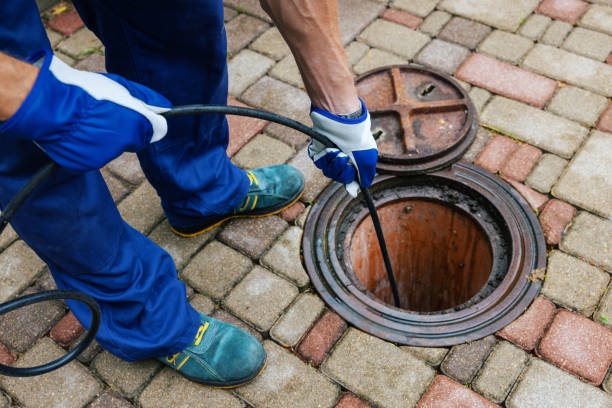Every homeowner encounters a clogged drain at some point. It can be a frustrating experience, especially when faced with a slow-draining sink, a gurgling toilet, or worse, a backed-up sewer line. But before you panic and reach for the harshest chemical drain cleaner, there are steps you can take to address the clog and prevent future problems. This guide will equip you with the knowledge to tackle residential drain cleaning, from DIY solutions to calling in a professional.
Signs You Need Drain Cleaning
The first step is recognizing the signs that your drains need attention. Here are some common indicators:
- Slow drainage: This is the most common sign and can affect any drain in your house.
- Standing water: If water remains in your sink, bathtub, or shower after use, it's a clear sign of a clog.
- Gurgling sounds: Gurgling noises coming from your drains indicate trapped air struggling to escape due to a blockage.
- Frequent clogs: If you experience repeated clogs in the same drain, it suggests a deeper problem needing professional attention.
- Foul odours: A persistent unpleasant smell emanating from your drains signifies a build-up of organic matter that requires cleaning.
Read more: Unearthing the Importance of Sewer Repair Services: Ensuring Clean and Functional Infrastructure
DIY Drain Cleaning Methods
For minor clogs, you can try some DIY methods before calling a plumber. Here are some safe and effective options:
- Plunger: A classic tool for a reason. Use a flange plunger for sinks and tubs, and a closet plunger for toilets. Ensure a good seal and plunge vigorously for several pumps.
- Baking soda and vinegar: This natural combination creates a fizzing reaction that can loosen minor grease and soap scum clogs. Pour half a cup of baking soda down the drain followed by a cup of vinegar. Wait for the bubbling to subside, then flush with hot water.
- Boiling water: For greasy clogs, especially in kitchen sinks, boiling water can help melt and dislodge the blockage. Carefully pour a pot of boiling water down the drain.
Important safety tips:
- Never mix harsh chemicals: Combining chemical drain cleaners can create dangerous fumes.
- Wear gloves and eye protection: Chemical drain cleaners can irritate skin and eyes.
- Avoid using a metal coat hanger: It can damage your pipes.
When to Call a Professional Plumber
If DIY methods fail to clear the clog, or if you're dealing with a complex blockage, a professional plumber is your best bet. Here's when to call a professional:
- Severe clog: If the clog is causing extensive backups or you can't dislodge it with DIY methods, call a plumber.
- Frequent recurring clogs: This suggests a deeper issue that a professional can diagnose and fix permanently.
- Sewer line clog: A clogged sewer line is a serious issue that requires professional equipment and expertise.
- Broken or damaged pipes: A professional plumber can assess and repair damaged pipes.
Benefits of Professional Drain Cleaning
Hiring a professional residential drain cleaner offers several advantages.
- Expertise and experience: Plumbers have the knowledge and tools to tackle any clog, no matter the severity.
- Advanced equipment: Professional plumbers use specialized equipment like drain snakes and hydro jetting to clear even the toughest clogs.
- Preventative maintenance: Regular professional cleaning can prevent future clogs and identify potential problems before they become major issues.
Tips for Preventing Clogged Drains
Here are some preventative measures to keep your drains flowing freely:
- Install drain screens: Use drain screens in sinks and tubs to catch hair, soap scum, and food particles.
- Avoid pouring grease down the drain: Grease solidifies and accumulates in pipes, leading to clogs. Dispose of grease properly in a container.
- Don't flush non-flushable items: Only flush toilet paper and human waste. Avoid flushing tissues, feminine hygiene products, and anything else that can clog the pipes.
- Regularly clean your drains: Pour a pot of boiling water down your drains every month to prevent grease buildup.
By following these tips and taking action at the first sign of a clog, you can maintain a healthy and efficient plumbing system in your home. Remember, early intervention and preventative measures can save you time, money, and frustration in the long run.


No comments yet